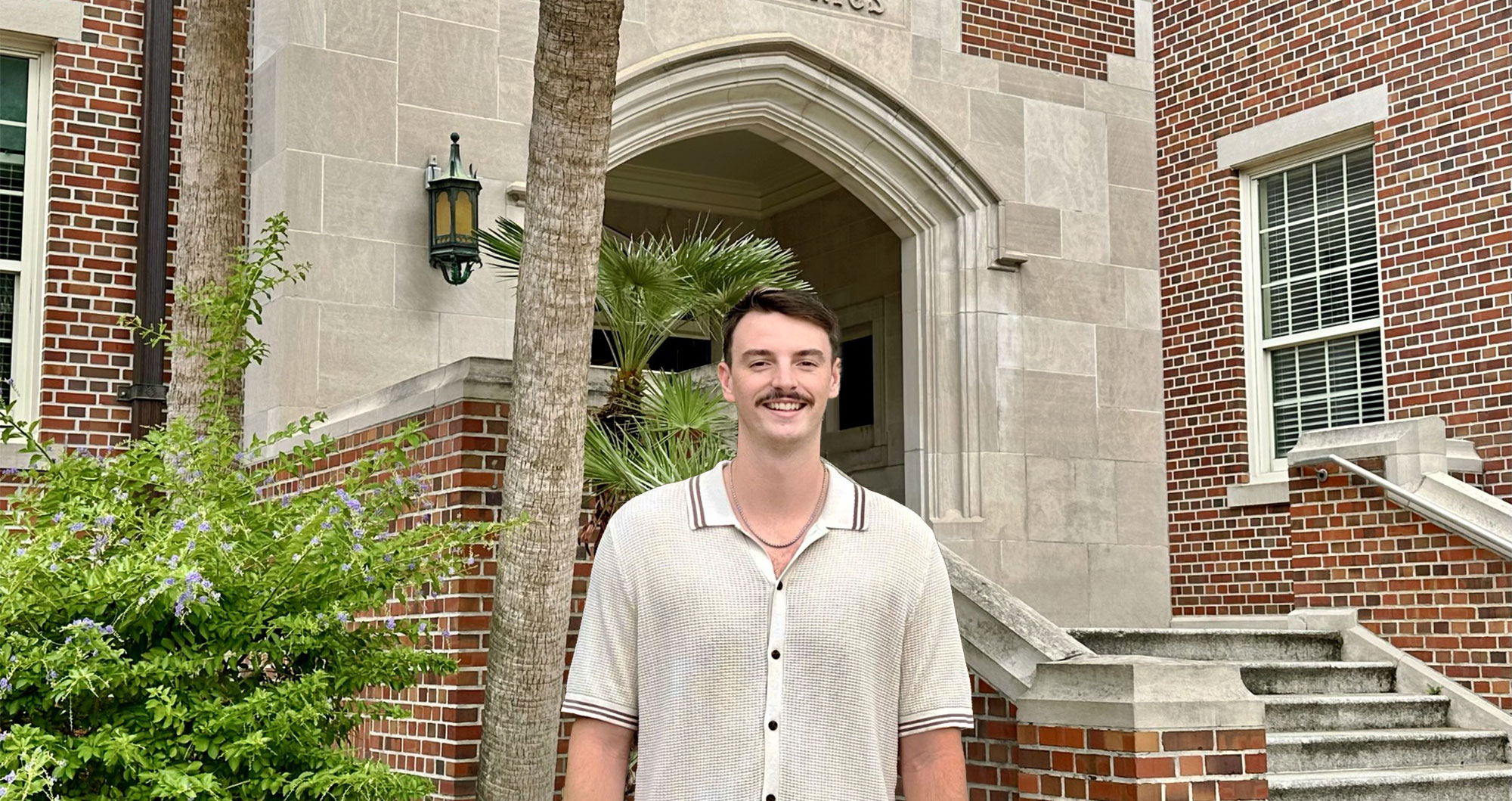Raised in rural Tennessee, first-generation college student Tanner Staggs never imagined attending graduate school.
He discovered his passion for research while working on his bachelor’s degree in computer science at the University of North Alabama, where he served as an undergraduate research assistant in the Center for Sports Analytics.
There, he was introduced to optimization – an experience that sparked a deeper curiosity about mathematical principles that led him to pursue a Ph.D. in industrial & systems engineering at the University of Florida.
Now starting the second year of his doctoral studies, Staggs focuses on the development of novel algorithms for solving large-scale network interdiction problems. His work helps identify network vulnerabilities, and he designs robust networks in infrastructure planning projects.
His day starts at 8 a.m., as he balances coursework in optimization, machine learning, statistics and geographic information systems. He reads papers, runs computational experiments and explores the mathematical foundations of his research.
“Many network interdiction problems are NP-hard, meaning they are complex and difficult to solve optimally in a reasonable time,” Staggs explained. “In network interdiction, the choices are often combinatorial, and they must anticipate how the network will respond.”
Jorge A. Sefair, Ph.D., associate professor in the Department of Industrial & Systems Engineering in the Herbert Wertheim College of Engineering, says Tanner’s work plays a key role in designing more robust networks for infrastructure systems.
“There might be failures that affect the operations of networks. This could be a natural disaster,” Sefair said. “There could be disruptions in other systems that affect the network or even an adversarial or terrorist attack. Tanner is studying how to operate those networks under that vulnerability and how to make them stronger.”
Staggs explains more about his research and life as an ISE graduate student:
How has your training in computer science translated into your current research?
Computer science and Industrial & Systems Engineering have a lot of similarities – particularly in algorithm design and problem-solving. I enjoy working on large-scale problems and my computer science background helps me to develop exact algorithms for problems that are otherwise intractable. During my undergraduate studies, I focused on practical and efficient implementations of algorithms and writing code in a reusable manner. This foundation helps me quickly explore new ideas, test theoretical models and build computational solutions more efficiently.
Why is it important to study network interdiction problems in today’s world?
As a society, we are more reliant than ever on infrastructure like electricity and the internet. By studying network interdiction problems, we can look at these systems and understand what components might be vulnerable in certain scenarios. This means that we can make informed decisions about how to make the system more robust in a cost-effective way.
What has been one of your most rewarding experiences?
I have had the chance to work with talented undergraduate students. It’s great to see what they accomplish and how eager they are to learn new things. My favorite part is observing their progression and how they become more confident in their work. I have a passion for teaching, so I’m glad to have an opportunity to work with students.
What has been a highlight in your Ph.D. journey so far?
I was awarded the Dean’s Research award, which recognizes outstanding Ph.D. candidates and includes a competitive stipend and tuition waiver. It’s a great encouragement to continue pushing the boundaries in my research.
What do you enjoy doing outside of research?
Taking trips to the beach with my wife, watching sports and spending time outdoors.
What impact do you hope your work will have on society?
I hope my work will equip governments and organizations with the tools necessary to invest in smarter and more resilient infrastructure.

